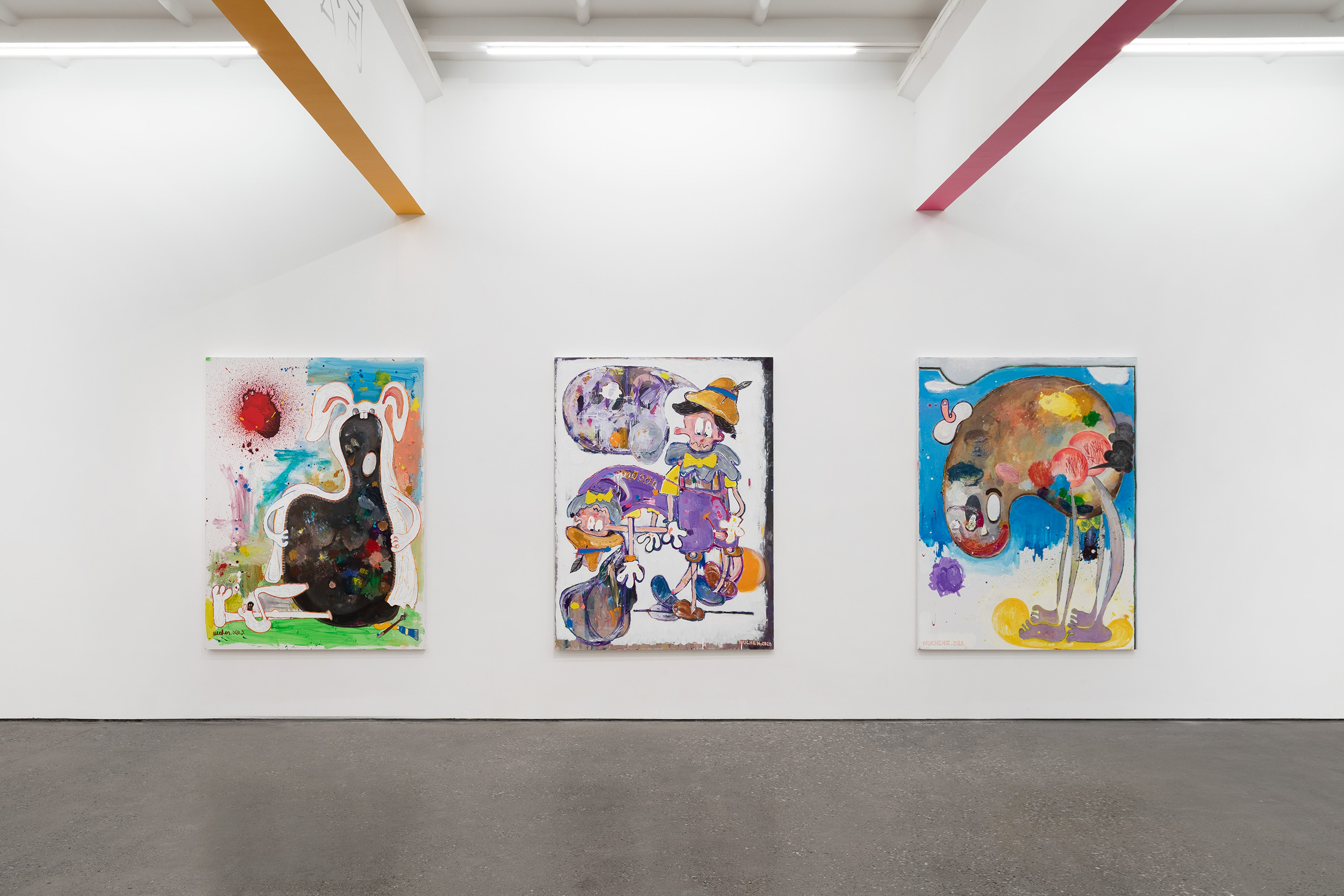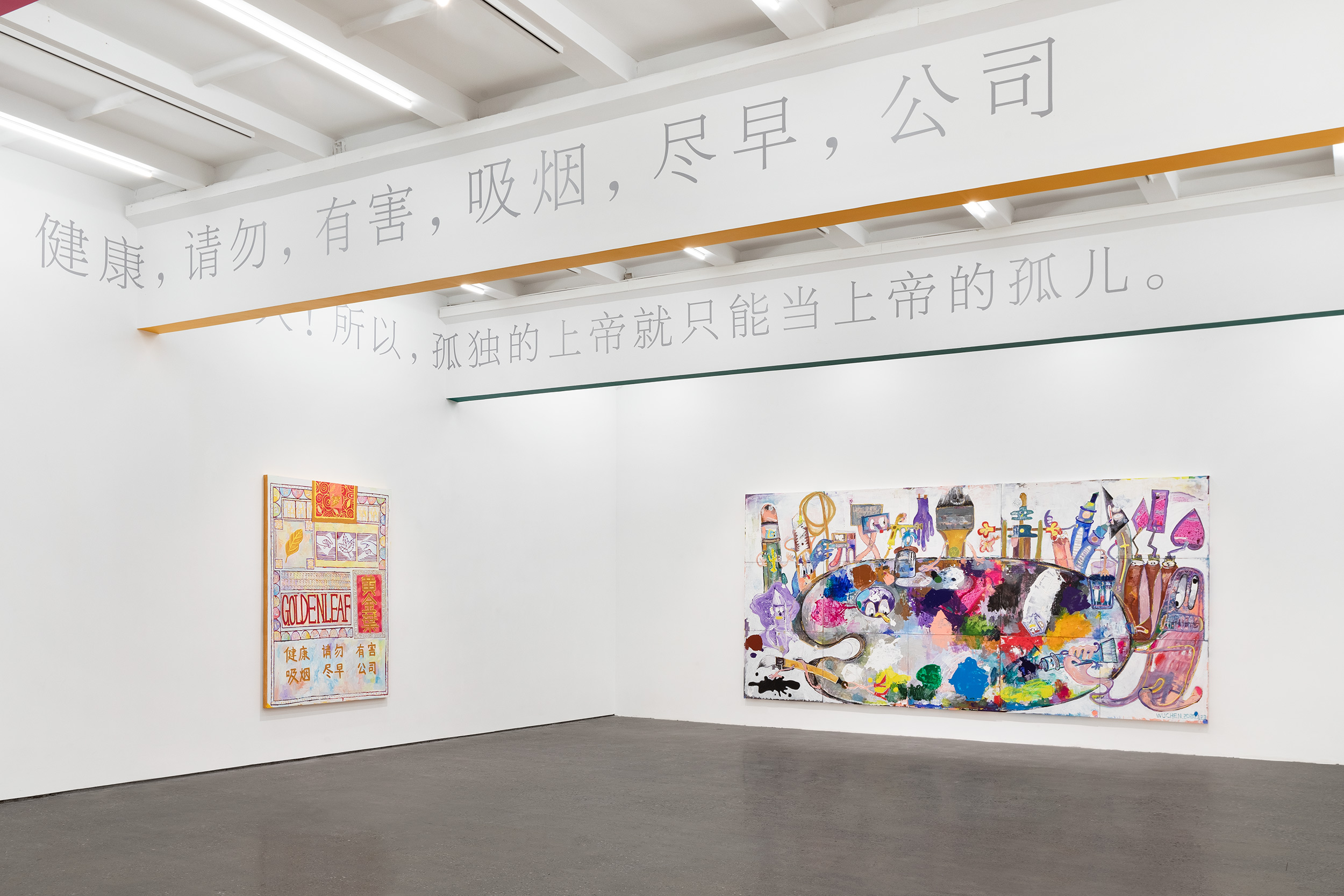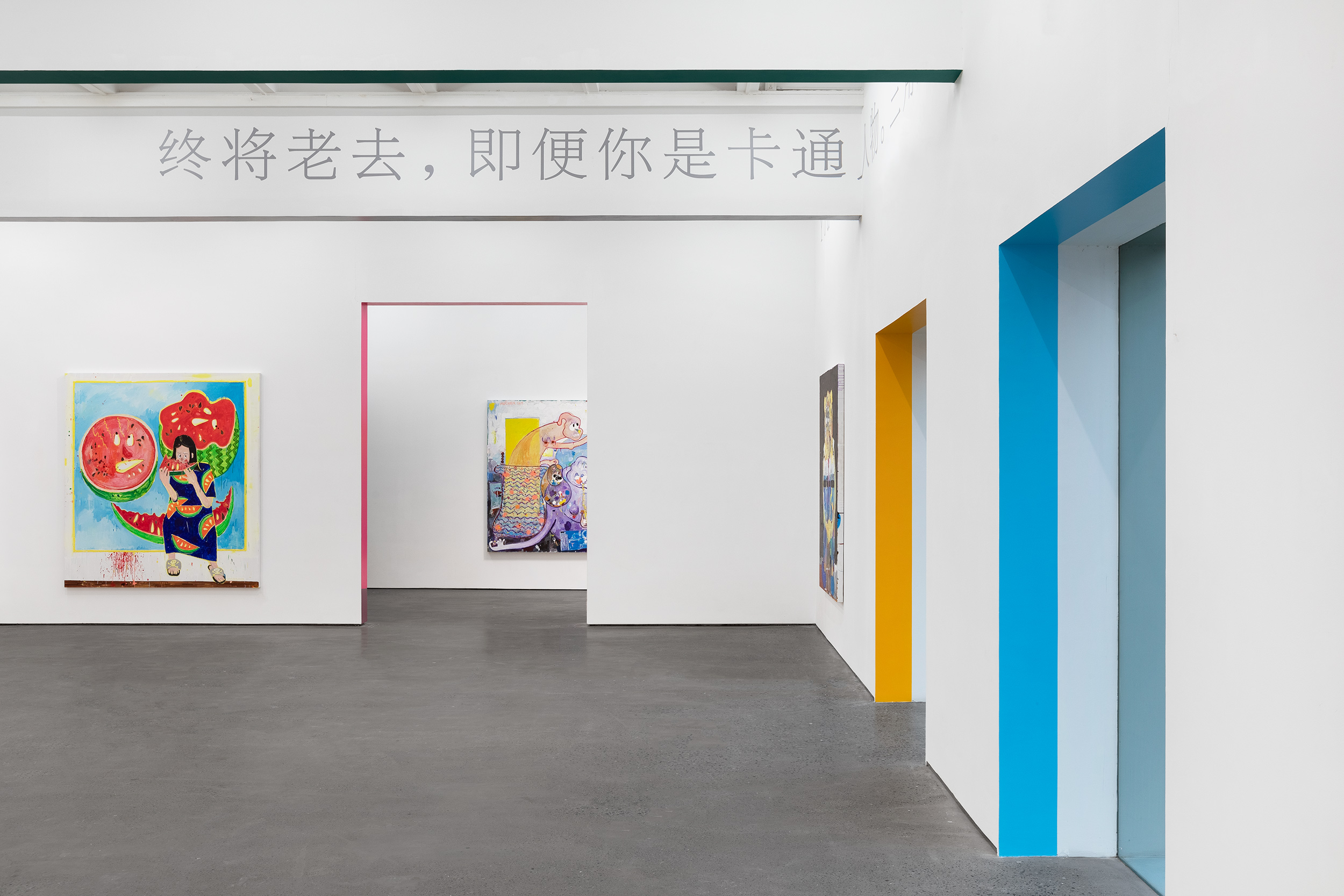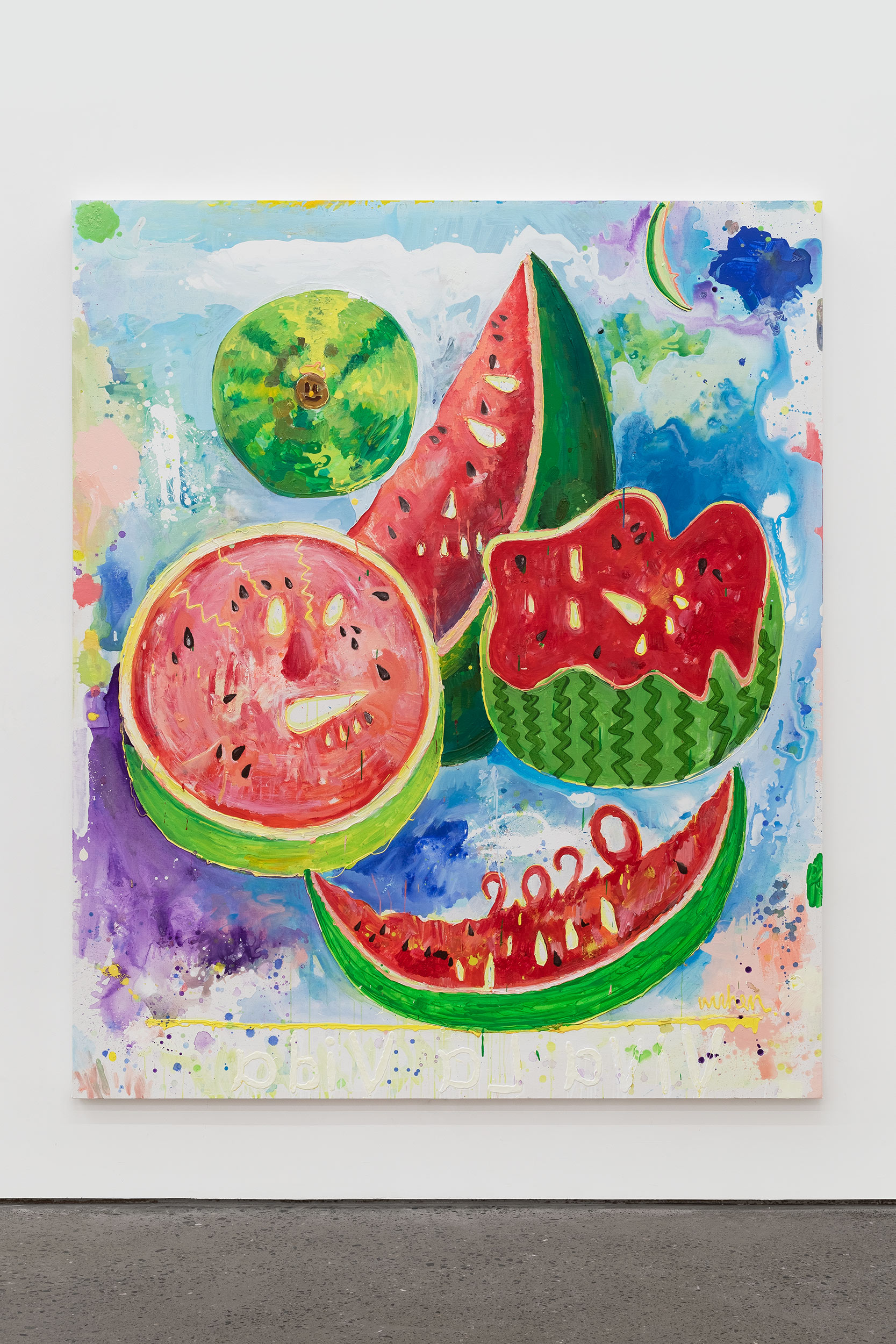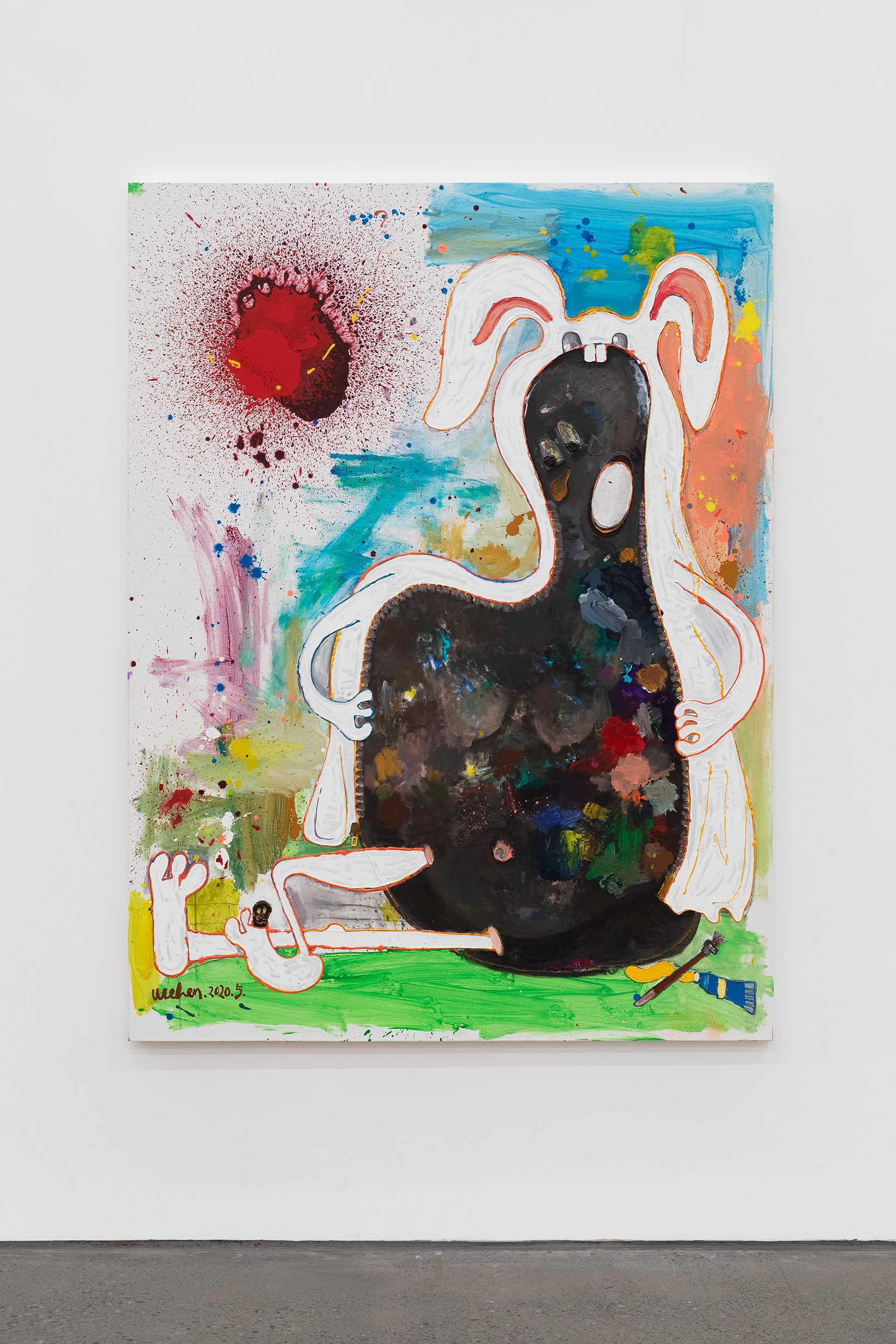Wu Chen: Therefore, the Lonely God Can Only be the Orphan of God
This post is also available in:
 简体中文 (Chinese (Simplified))
简体中文 (Chinese (Simplified))  English
English
Magician Space is delighted to announce artist Wu Chen’s solo exhibition, ‘Therefore, the Lonely God Can Only be the Orphan of God,’ from October 31 to December 26, 2020.
Among the artworks presented for this exhibition, Wu Chen’s paintings revolve around two subject matters: The worldly famous icons in animation films, for instance, Pinocchio in Pinocchio (1940), and Casper and his uncles in Casper (1996); The other would be the commonplace and everyday items in his art studio, such as painting tools or watermelon. The artist personifies or animates these familiar objects, attributes them with actions, expressions, and distinctive characteristics.
Most of the works on view have been completed in 2020, which implies that these cute and exaggerated figures are born in an extremely chaotic context in real-life, actively participating or passively involved in it. Their innocence, reflected through vivid and colourful hues, can also be interpreted as a stimulating gesture that, together with the artist’s brushstrokes, portrays the impetus of their psychological activities, reminiscent of the scarred and slightly corrupted bodies of de Kooning’s mature paintings. As such, the boundary between innocence and violence blurs.
Similar to Wu Chen’s previous works of art, the ones presented in ‘Therefore, the Lonely God Can Only be the Orphan of God’ playfully appropriate the classics from art history. The watermelons in Untitled (Travelers Among Watermelon Hills) are an apparent extraction from Fan Kuan’s Travelers Among Mountains and Streams from the Northern Song Dynasty. The red and green watermelon and its ‘archetype’ contrast in colour and subject matter conceal their structural similarity.
The works in ‘Therefore, the Lonely God Can Only be the Orphan of God’ appeal to the viewers. The cartoon characters are popular and familiar to the contemporary audience. Wu Chen paints his concerns about politics into a visual script, assigns roles to these ‘actors,’ and choreographs their body movements and dialogues. The titles he gave to his works on canvas are like the phrases in this narrative, palatable for their interpretation. On the other hand, through various dialogues with the ‘archetypes’ of the classics in art history, Wu Chen continually hones his paintings’ formal language. With which, he threw viewers a conundrum, should one ‘read’ the narrative in painting, or ‘look at’ the language of painting? In this game of painting, Wu Chen remains inexhaustibly engaged.


